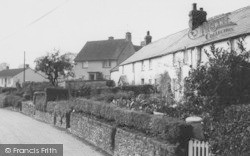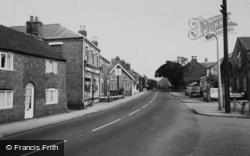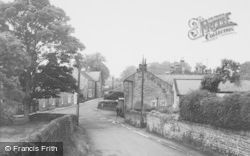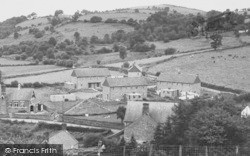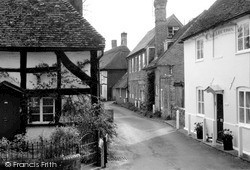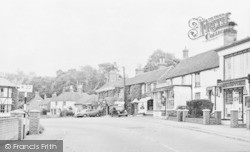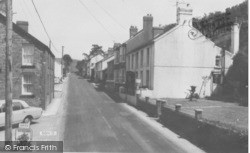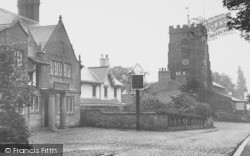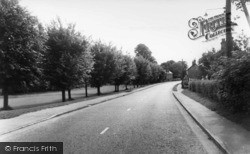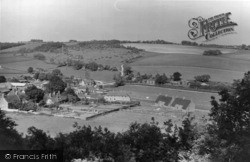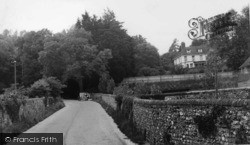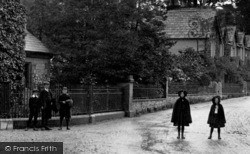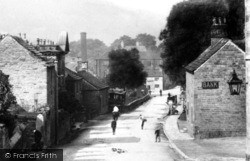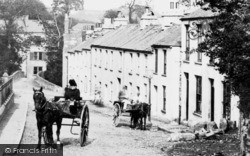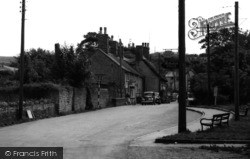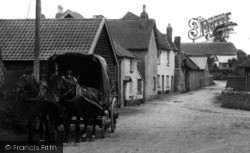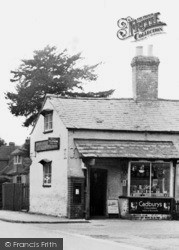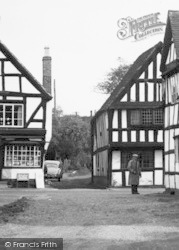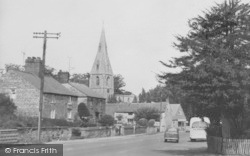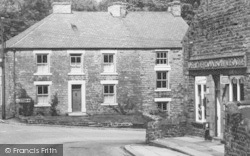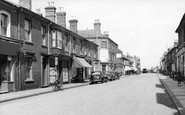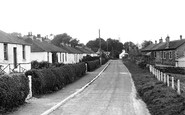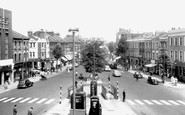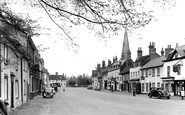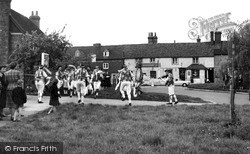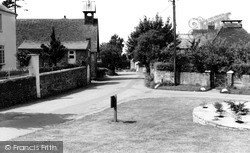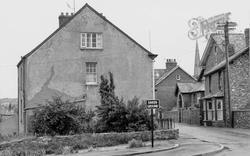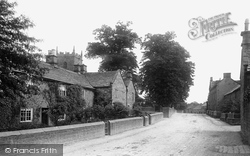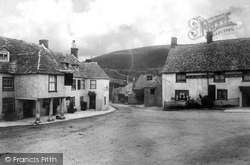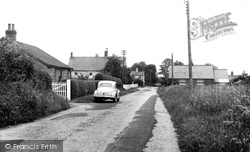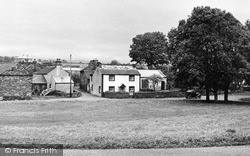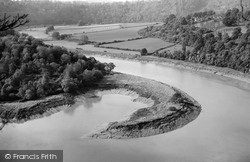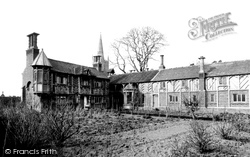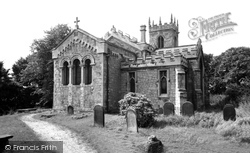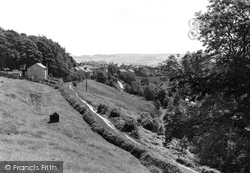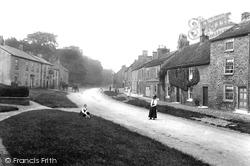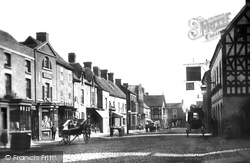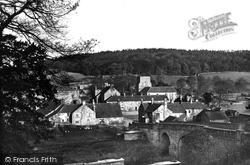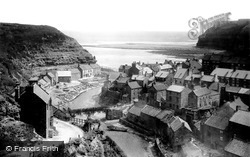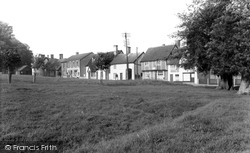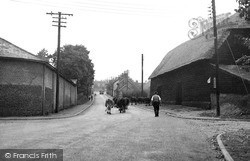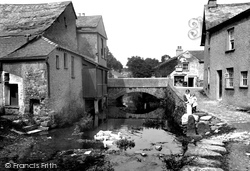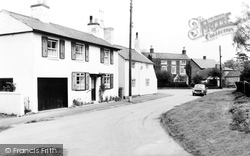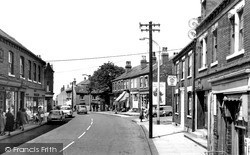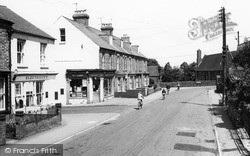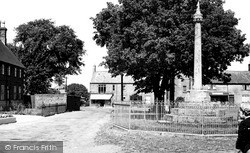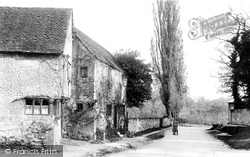Places
5 places found.
Those places high-lighted have photos. All locations may have maps, books and memories.
Photos
9,649 photos found. Showing results 2,021 to 2,040.
Maps
18 maps found.
Books
13 books found. Showing results 2,425 to 13.
Memories
4,612 memories found. Showing results 1,011 to 1,020.
Best Childhood Ever
I was born in Easington Coliery in December 1940. Grew up in Canada In Dene Avenue. My dad worked At the pit as a wagonwayman in the Hutton Seam. Grandparents were from Cornwall Stret, East.I had a tha best childhood ...Read more
A memory of Easington Colliery by
1947 1953
I remember the walk to the Methodist Church in the Village, and the long journey to and from St. Henry's Grammar School. For some reason a Mr. Archer sticks in my memory, who taught us to swim in the round swimming pool that had no shallow ...Read more
A memory of Bramhope by
Rhu
My Grandfather, Andrew Johnston, lived in Kilbride Cottage, Rhu (next to the manse on the corner) and every school holidays my mum Janet Kempton (nee Johnston) brought us up to Rhu for the holidays. Grandpa died when I was about 8, he was ...Read more
A memory of Kilcreggan in 1950 by
The Wolverton Palais
I remember the"Palais de Dance"in Wolverton. They used to put some great bands on there. We used to come up from Fulham in London 7 or 8 times a year to go there. The people of Wolverton were some of the friendliest people ...Read more
A memory of Wolverton in 1965 by
Abergorlech
I moved with my parents, Ron and Edith Burnett, to Abergorlech in 1952 when I was 10 years old. My father worked for the Forestry Commission, and we lived in the Forestry House about a mile west of the village. In those days it was ...Read more
A memory of Abergorlech in 1952 by
Best Ice Cream
Friends of the family owned a remote cottage towards Cairnsmoor from Creetown. We holidayed from Surrey on steam-hauled trains via Carlisle to the end of the world. Sheep scratched their backs on the corner of the cottage. Brown ...Read more
A memory of Creetown in 1954 by
Village Road, Finchley
I was born at number 7, Village Road, Finchley in 1932 and lived there until October 1939 when my dad's businesses in London were requisitioned. Lots of memories. Milk was delivered by United Dairies and the horse ...Read more
A memory of North Finchley in 1930 by
Sileby My Early Life
I was born in Mountsorrel 1938 and soon moved to Sileby 10, Mountsorrel Lane with my mother Mabel Foukes [nee Burton]. My father Thomas was in the army and my mum worked at Newbold Burton and Lawson Ward. I remember convoys of ...Read more
A memory of Sileby in 1940 by
Kimbolton/Alcombury
My father was stationed at Alcombury and we were lucky to live with the Hunt family in a manor house. Mr. Hunt worked at the school. I went to school in Bedford as a weekly boarder. The Hunts' daughter was my friend and we ...Read more
A memory of Kimbolton in 1955 by
Playing Football
I remember the person who broke his leg that day was Bernie Lowe as I was playing for the team Hound United against Netley FC on that pitch. I also remember your father as I played for them for a season with I think your brother ...Read more
A memory of Netley by
Captions
5,016 captions found. Showing results 2,425 to 2,448.
Led by the fiddle-player on the right, and probably lubricated by the pub behind him, Morris dancers perform on the village green in the year that ended post-war rationing.
The village of Lower Penn was once owned by Lady Godiva, and was formerly known as Nether Penn.
Now a suburb of Wellington, the village was once known as Rowe Green, but often dubbed 'Rogue Green' because of the unruly behaviour of some of its inhabitants.
The twin-gabled cottages in the centre of this photograph are where the infamous plague first struck in 1665.
The little town of Corfe is older than its castle; it is the Corvergate of the 'Anglo-Saxon Chronicle'.
The school was built on the Green in 1872 at a cost of £700, with accommodation for 70 children. The side windows have gone and have been replaced by six sky-lights in the roof.
The bottom green, seen here, was at one time a pond where ducks and geese would wander freely. It was said to have been drained in 1841 by a Mr George Brown.
Just up river from the bridge and the castle, this would appear to be a view from Wintour`s Leap of the beginning of the great Horseshoe Bend which encompasses the peninsula of Lancaut.
In the village itself, Gregory Gregory's hand is everywhere, as befits an estate village nestling at the gates of a great country house in its park.
Moving west to the county's boundary with Yorkshire, our tour reaches Harworth, an old greatly expanded village lying east of the Tickhill to Blyth road.
In the village itself, Gregory Gregory's hand is everywhere, as befits an estate village nestling at the gates of a great country house in its park.
Between Preston and Clitheroe lies Hurst Green in the Ribble Valley, backed by Longridge fells.
We are looking north, with the White Swan on the left and tall trees near the church in the centre. The grass in the foreground would soon bear a 1914-18 war memorial.
The village features in the story surrounding Wulfhere of Mercia and his two sons Ulfred and Rufin.
This view features the church of St Mary the Virgin.
The village is said to have begun as the result of a shipwreck when survivors from a French ship scrambled ashore and decided to stay.
The village got its red telephone box (centre) listed in 1987. The former post office, called Hunter's, is to its right.
The herd of dairy cattle is making its way to Hall Farm, which included the former tithe barn dating from the 17th century.
Here ducks dabble peacefully in the beck which runs through the centre of the village, while a mother proudly poses with her baby.
The advent of the internal combustion engine saw the demise of the village blacksmith, although the art is making something of a comeback with the demand for decorative railings and gates.
Situated just to the east of Leeds, the village of Kippax was the scene of much coal mining since 1410. The estate surrounding the old Kippax Hall contained many unusual black deer.
Church Street and the roads off to the left are part of a grid of Victorian brick, terraced, straight streets.
The Buttercross is to be found in the centre of the village market place. The railings have gone, as have the brick wall and the trees behind it.
Travellers on the A25 cannot fail to see the scars on the south side of the North Downs that were once the Betchworth quarries.
Places (5)
Photos (9649)
Memories (4612)
Books (13)
Maps (18)


